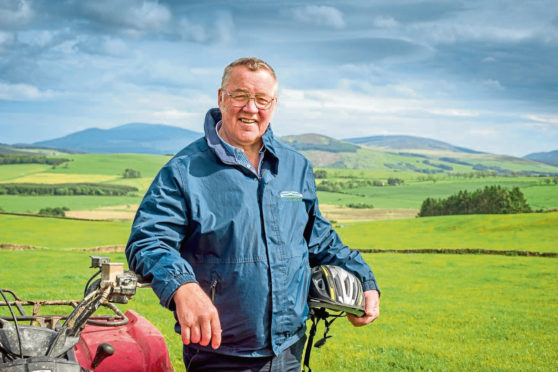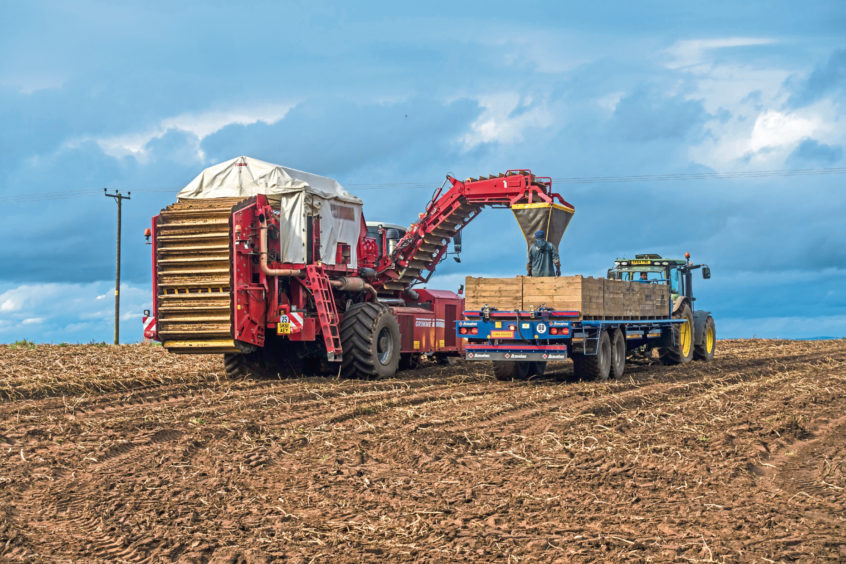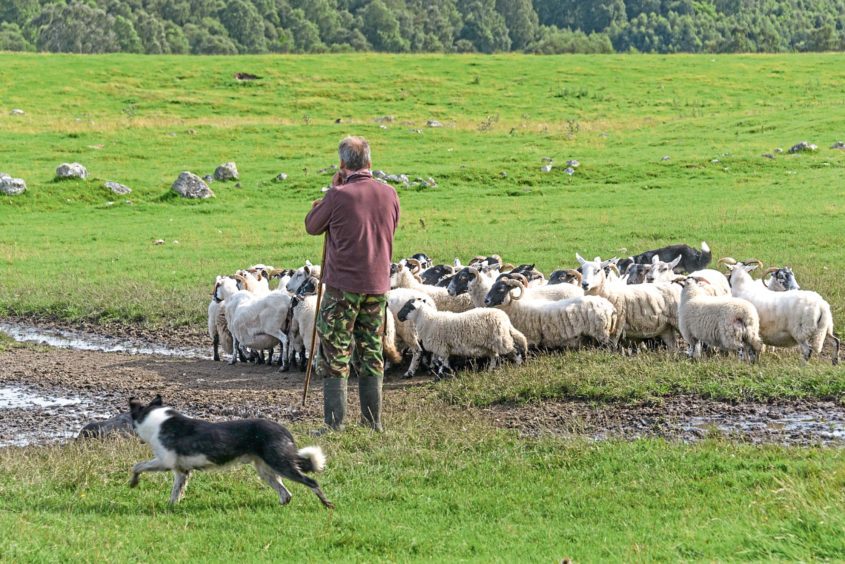Scottish farmers and crofters breathed a sigh of relief after a post-Brexit trade deal was agreed just days before the end of the transition period.
Farmers’ union NFU Scotland (NFUS), which has long warned of the devastating consequences of a no-deal Brexit for Scotland’s farming sector, welcomed the deal and said it would provide some certainty for farmers and crofters.
However, the union’s president, Andrew McCornick, said the news that seed potatoes had been denied third-country equivalence status by the European Union – the mechanism whereby the European Commission decides whether a non-EU country’s regulatory, supervisory and enforcement regime is equivalent to its own – was “deeply disappointing”.
“It is good news and a huge relief that a deal has been done,” said Mr McCornick, who farms in Dumfries.
“The delay in getting agreement has meant that farmers and crofters, who had been forced into making big business decisions for 2021 in a void, now have a degree of certainty that European markets will be accessible next year for most of their products.”
He said the lack of third-country equivalence status for seed potatoes means farmers will no longer be able to export seed tatties to Europe from January 1, 2021.
Although many seed potato companies have rushed to export their produce across to the continent before the end of 2020, Mr McCornick said the loss of European trade would be a blow for the sector.
According to NFUS, Britain exports around 30,000 tonnes of seed potatoes, worth £13.5 million, to mainland Europe every year with the majority of the potatoes coming from Scotland.
Mr McCornick said the union would lobby for fresh negotiations to restore the trade of Scotland’s “prized high-health seed potatoes” to Europe.
He said although a no-deal Brexit would have been damaging to the Scottish farming, food and drink sectors, the signing of a deal did not mean business as usual.
“Whatever the details of the deal, wrapped up in more than 2,000 pages, there will be friction,” added Mr McCornick.
“Our new trading arrangement with the EU will not be a continuation of what we have just now. New demands on paperwork and new rules around certification will bring a period of adjustment, the potential for delay and add additional costs.”
The National Sheep Association (NSA) said sheep farmers across the country would be “hugely relieved” that a deal had been agreed.
A report, commissioned by the Scottish Government and carried out by farm consultancy firm Anderson, recently warned a no-deal Brexit would jeopardise the viability of many Scottish farm businesses with the sheep and barley sectors the worst hit.
NSA chief executive, Phil Stocker, said: “It’s right, with Christmas now on us, that we take breath and celebrate this breakthrough, but no one should think this means that life will continue as it has been.”
He agreed with Mr McCornick and said trading with Europe would now involve new and additional bureaucracy and border controls, additional costs and delays.
Mr Stocker added: “Our trade with the EU makes sense – it’s on our doorstep, it works for both parties and it is a relief that it can now continue.
“We should still expect some disruption to trade and the movement of goods over the first month or so until things settle down and exporters and importers become au fait with new systems, but the relief in agreeing this deal is immense.”
Sarah-Jane Laing, chief executive of landowners’ body Scottish Land and Estates, said: “We will be digesting the detail of the deal in the coming days but we should recognise that farmers, food producers and exporters will still need to be ready for the substantial customs checks that will be introduced as part of our future relationship.
“There will undoubtedly be additional costs that businesses will incur, such as veterinary certification, and this much be acknowledged as part of the new arrangements.”


